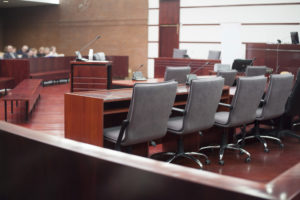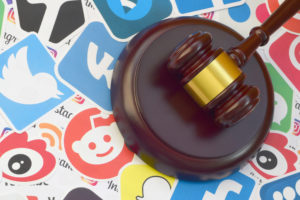Is it legal to retweet a defamatory statement? Is it OK to mention a libelous article on social media? A California judge ruled on the issue. Her decision: Discussing potentially defamatory articles on social media doesn’t necessarily mean you’ll be held liable for libel.
Case Study: Are You Liable For Retweeting A Defamatory Post?
On September 13, 2011, Los Angeles Laker Devin Ebanks left a club with a woman. Later that night, the woman contacted law enforcement officials; she claimed Ebanks raped her; he insisted they never had sex.
The night of the incident, the woman filed a rape complaint against Ebanks, and the police opened an investigation. After several days, TMZ reported that the police cleared Ebanks. According to the gossip website, law enforcement officials didn’t find evidence of “foreign DNA” on the accuser. Reports also surfaced that the claimant had allegedly made unfounded sexually related claims against other professional athletes.
Social Media Conversation Leads To Twitter Defamation Lawsuit
The day TMZ published the story, Ebanks tweeted with his friend, Junior. (Junior happened to be the guy who set-up Ebanks and his accuser.) During the online back-and-forth, Ebanks jibed Junior about never setting him up with another woman.
Time passed, and presumably still unsatisfied, the woman filed a Jane Doe sexual assault civil complaint against Ebanks. Curiously, in her filing, Doe argued that since Ebanks tweeted about the contents of the TMZ article, he committed online libel. The claim had people wondering: “Are you liable for retweeting a defamatory statement?” Doe’s lawyer reasoned:
“When defendant responded to the Twitter message, ‘I’m glad you got cleared on that incident,’ Defendant Ebanks adopted the false statements included in the TMZ article, thus defaming Plaintiff Jane Doe.”
In other words, since TMZ’s article was ‘salacious’ and Ebanks’ Twitter messages “were not about rape (and therefore not a matter of public interest),” his actions were self-serving and done to gather ammunition against his accuser.
Anti-SLAPP Response To Twitter Defamation Claim & Judge’s Ruling
Ebanks countered Jane Doe’s suit with an anti-SLAPP motion. The question under consideration: “Can Twitter users be held liable for re-tweeting or discussing inaccurate information that damages someone’s reputation?” Ultimately, the judge reasoned that, in this case, the defendant didn’t “adopt” the contents, or any possible inaccuracies, of the TMZ article by talking about it on Twitter. Specifically, the judge reasoned:
“While the Twitter conversation and TMZ article were published on the same date, the Twitter conversation does not specifically reference the article other than to speak of the same incident the article covered.”
Are you embroiled in a Twitter defamation melee? We do more than just answer questions like, “Am I liable for retweeting a defamatory statement?” Kelly Warner maintains a dedicated online defamation practice. Get in touch.




Leave a Reply
Your email is safe with us.